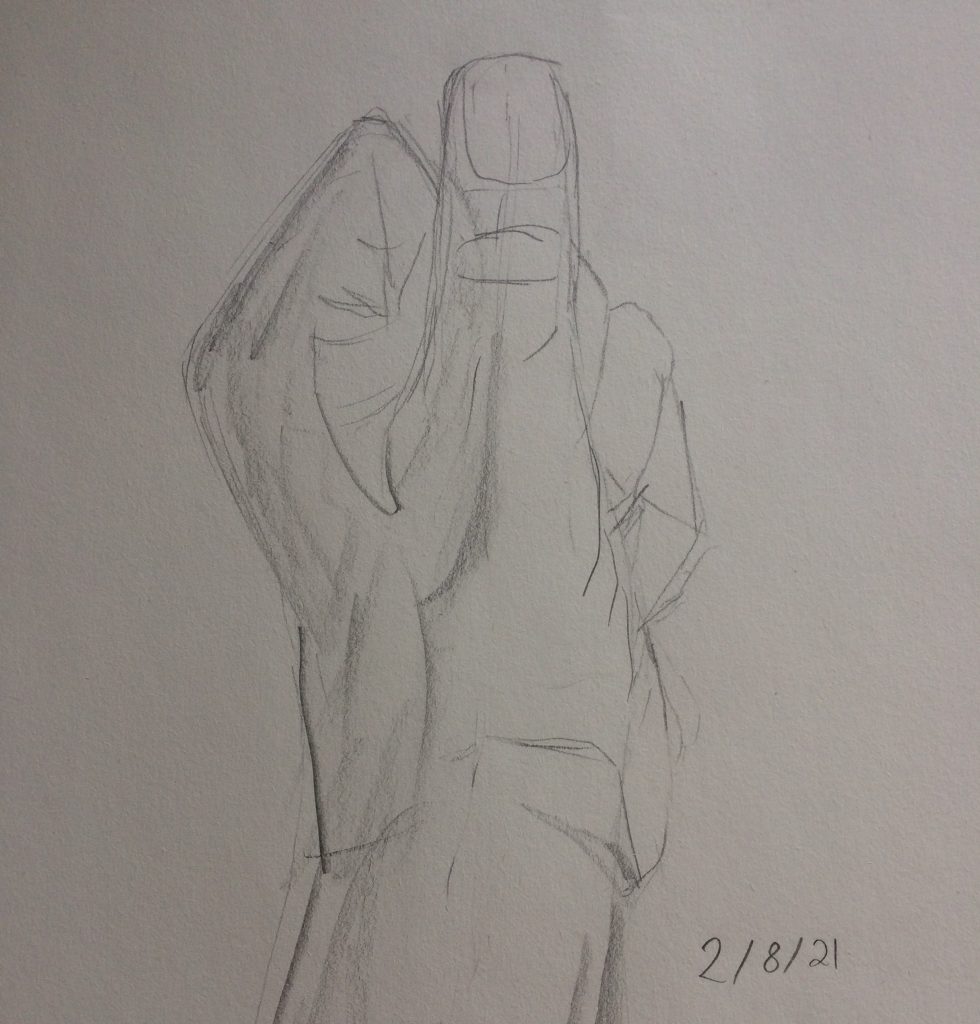“The correct method in philosophy would really be the following: to say nothing except what can be said, i.e. propositions of natural science—i.e. something that has nothing to do with philosophy—and then, whenever someone else wanted to say something metaphysical, to demonstrate to him that he had failed to give a meaning to certain signs in his propositions. Although it would not be satisfying to the other person—he would not have the feeling that we were teaching him philosophy—this method would be the only strictly correct one.” (Ludwig Wittgenstein)
It might not be immediately clear what drawing pictures and telling stories (and especially what imagining dragons and potatoes) has to do with writing in the social sciences. I suggest these analogies (and even exercises) because they are ordinary activities that you probably already know how to carry out. When writing a paper, you should feel as knowledgeable about its contents as you are about what you did last week. You should feel as “authorized” to explain your methods as you are to tell a story about a trip the store. It should be as natural for you to read about a social organization as it is to read a novel about dragons. Your empirical observations should be as familiar to you as a small pink potato right in your hand. Ideally, scientific language is just ordinary language with some added jargon that mostly consists of labels on the switches and dials of some specialized “equipment”. It’s not the language that is “technical”; it’s the tools and methods that are used.
Consider the widely used “semi-structured interview”. When writing your methods section, you are not describing some abstract procedure, but the actual interviews that you conducted. You decided who to talk to, just as you might decide what bus to take or what shirt to buy. There were various things to consider, pros and cons to balance, and then you made your choice. You then contacted your interview subject — again, using some perfectly concrete means of communication, like email or phone — and you sat down in a particular place at a particular time and talked to that person for an hour or so. These are all perfectly ordinary experiences, but, instead of arriving at a destination or acquiring a piece of clothing, you have “gathered data”. You did some practical work to produce materials that are amenable to theoretical analysis. That practical work can be described easily for other people who are familiar with the terminology of semi-structured interviews. They know the names of the processes involved. And they are able to recognize reasonable solutions to common problems.
Something similar can be said of your theory and, of course, your analysis. These are things that you are familiar with. You have read the key texts, just as your reader has read them, and you have not only collected your data but studied it carefully. Reading is a perfectly ordinary activity in which you make sense of someone else’s writing. You cite the work that does actually makes sense to you, that has shaped they way you think, and that you assume your reader’s mind has also been shaped by. Your research is part of a conversation with other researchers pursuing similar ends by similar means, so, again, while the language is often quite technical, it is familiar to you and to your reader. And though your reader hasn’t seen your data at first hand, you have organized it in such a way that, if you were to show it to them, they would understand why you have concluded what you have. They would recognize the kinds of materials you’re working with and the way you’ve arranged them for the purpose of analysis. We can say, perhaps, that the assumption behind any research paper is that your readers could write most of it themselves on the basis of the sources you have used. You’re simply saving them the trouble.
In short, you imagine your science (your discipline or “paradigm”) by imagining a small community of people with common interests and shared experiences all speaking the same language. There are a few things that will not be familiar to everyone and you will have to inform your reader about these things, but mostly you’re talking to someone who is able to understand you. The “technical” terms in your language refer to specialized techniques and technologies that allow you and your reader to construct models to frame your results. The models can, of course, be quite abstract and the results can be quite formal. (A pricing model may generate discrete values for the retail and wholesale price of a manufacturer’s product, for example.) But they are always summaries of the richness of ordinary experience, some of it stemming from our reading, some from first-hand observation. The terms in our technical language always refer to ordinary experiences, i.e., experiences that our scientific peers can ordinarily have for themselves. That’s important to keep in mind when writing.

